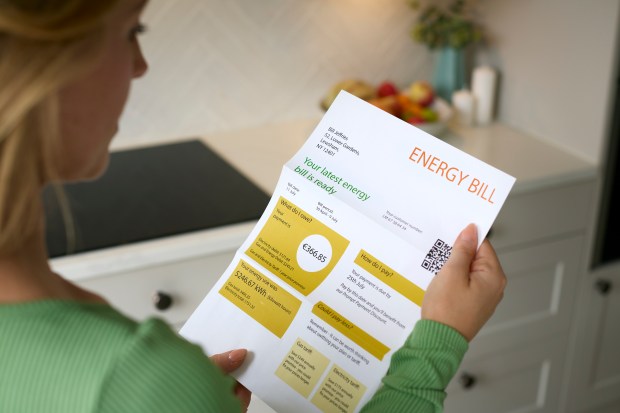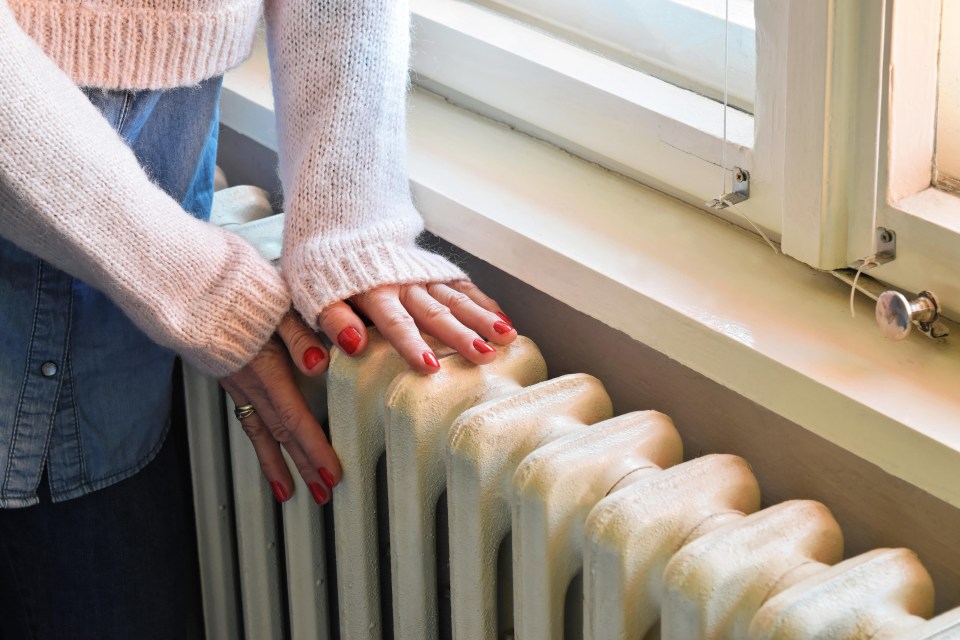EVERYONE has been told at some point that keeping your heating on at a low level all day is cheaper than turning it on as and when.
But is that really true?
With temperatures starting to drop and some of us thinking about switching the thermostat on, now is the perfect time to get to the bottom of it.
It’s especially important this year as the energy price cap is going up again on October 1.
The change means households will be paying 2% more for their energy, on average.
So, here’s what the experts say about the best way to save on your heating bill…
Read more on energy bills
In most circumstances, it’s not recommended to have your heating on low all day – but there are exceptions.
Instead, it’s best to turn your heating on only when you need it.
Stephen Hankinson, heating expert at Electric Radiators Direct, said: “It’s usually cheaper to turn your heating on for short bursts, rather than keeping it on all day.
“This is because you’ll be steadily losing energy throughout the day when the heating is on constantly, and never really benefit from the warmth due to it being at such a low level.”
Houses will lose energy when the heating is on even if they have the highest level of insulation.
So if you have your heating on all day, you’ll be losing energy all day and paying to replace the escaping heat.
What energy bill help is available?

There’s a number of different ways to get help paying your energy bills if you’re struggling to get by.
If you fall into debt, you can always approach your supplier to see if they can put you on a repayment plan before putting you on a prepayment meter.
This involves paying off what you owe in instalments over a set period.
If your supplier offers you a repayment plan you don’t think you can afford, speak to them again to see if you can negotiate a better deal.
Several energy firms have schemes available to customers struggling to cover their bills.
But eligibility criteria vary depending on the supplier and the amount you can get depends on your financial circumstances.
For example, British Gas or Scottish Gas customers struggling to pay their energy bills can get grants worth up to £2,000.
British Gas also offers help via its British Gas Energy Trust and Individuals Family Fund.
You don’t need to be a British Gas customer to apply for the second fund.
EDF, E.ON, Octopus Energy and Scottish Power all offer grants to struggling customers too.
Thousands of vulnerable households are missing out on extra help and protections by not signing up to the Priority Services Register (PSR).
The service helps support vulnerable households, such as those who are elderly or ill.
Some of the perks include being given advance warning of blackouts, free gas safety checks and extra support if you’re struggling.
Get in touch with your energy firm to see if you can apply.
This is especially true if you have a draughty or poorly insulated home.
Nicholas Auckland, heating and energy expert at Trade Radiators, said: “For most homes, it’s generally best to turn your heating on only when you need it, rather than leaving it on low all the time.
“By only turning the heating on when you need it, you’re only paying for the heat that you actually use, which is much more efficient and offers you better value for money when it comes to energy bills.”
If you’re out during the day, there’s no point heating up an empty house.
Plus, if you’re on a variable tariff, where prices fluctuate throughout the day, then it might be more cost-effective to heat your home at certain times.
Dave Raval, CEO and energy expert at LoftZone, said: “I personally pay half-price for electricity for eight hours, including the evening, but double the price during three peak hours.
“For people on tariffs like this, it makes sense to plan heating use around those time periods rather than leaving it running constantly.”
It’s also more cost-effective to turn the heating off at night, so you should invest in a duvet with a high tog or an extra blanket to keep you warm.
If you’re feeling the chill in the morning, Stephen suggests switching on your heating for a short burst first thing.
“The coldest time of the day is just after sunrise, so I always recommend switching your heating on normally around 6:30am and 7:30am,” he said.
When you might want to consider leaving your heating on
While generally it’s cheaper to turn your heating on as and when, there are some exceptions to this rule.
For example, it can depend on the type of heating system you have and how well your home can retain heat.
In a well-insulated home, keeping the heating on low can be efficient because the warmth will stay in.
If your home is poorly insulated, you may be able to get free or lower cost insulation fitted through the Government’s Great British Insulation Scheme.
You may want to keep your heating on low if you have a heat pump.
James Chaplen, Mitsubishi Electric head of product marketing and communications, said: “With a heat pump, the best approach is usually to run it steadily at a comfortable temperature rather than switching it on and off like a traditional boiler.
“Heat pumps work most efficiently when they maintain a stable background heat, because they deliver warmth at lower, consistent temperatures.
“That doesn’t mean wasting energy – a well-insulated home with smart controls will keep costs down while staying comfortable. The key is to avoid big temperature swings and let the system do the work gradually.”
Nicholas said you may also want to keep your heating on low if you have underfloor heating.
This is because it can take a long time to warm up and be more effective when left on.
However, only a small number of homes have underfloor heating.
Another exception is if your home struggles with condensation.
In this case, it can be worth keeping the heating on at a steady level as then condensation is less likely to build on warm surfaces such as walls and windows.
If left unchecked, condensation can lead to damp and mould.
Plus, you may want to keep your heating on at a minimum level if you’re away during the winter.
Savings expert Zoe Morris, from VoucherCodes.co.uk, said you should aim to keep it at a minimum of 12C to prevent frozen pipes.
Repairs can be costly and you can also invalidate your home insurance policy if you don’t keep your house heated.
Overall though, if you’re unsure what is best for your home then the safest and most cost effective approach is to turn the heating on and off as you need it.
How to save money on heating
You can save money on your heating bill by only heating the rooms you’re using, rather than the whole home.
Nicholas said you should heat bedrooms and living rooms in the evening, and any home office or work spaces during the day.
He recommends using TRVs and manual valves to turn individual radiators on and off.
“If you’re not using a room, it could be beneficial to keep it on the lowest setting, which should mean that the radiator only kicks in if the room gets freezing, which prevents potential condensation and mould issues from forming,” he said.
“For spare rooms and rooms that are never used often, then turning radiators off completely can help you save money.”
Here is what he recommends for each room…
Living room
Turn on the heating in the evening or when the room is being used.
You can keep the heating off in the living room during the day, only turning it on when necessary.
Bedroom
You should turn the radiators on in bedrooms about an hour before you go to bed to warm the rooms up, and use smart controls to turn it on an hour before you wake up in the morning.
You can turn it off overnight if you think it’s warm enough, or keep it at a much lower temperature while you sleep.
Home office
During the day, the home office will need heat so that it’s comfortable to work in.
However, once work is done you can turn the heating off until the next day.
Bathroom
Heating bathrooms is important in order to prevent the growth of mould and mildew from condensation.
As well as this, you’ll need to heat bathrooms in order to dry towels, etc.
Nicholas recommends putting the heating on to dry towels after a shower, as well as putting it on before the shower to warm the room up.
Rooms that will rarely need heat so can have heating turned off the majority of the time:
- Spare bedrooms
- Kitchens (cooking should help keep kitchens warmer)
- Other unused rooms.
Do you have a money problem that needs sorting? Get in touch by emailing money-sm@news.co.uk.
Plus, you can join our Sun Money Chats and Tips Facebook group to share your tips and stories












